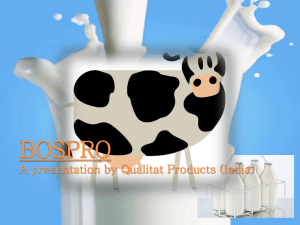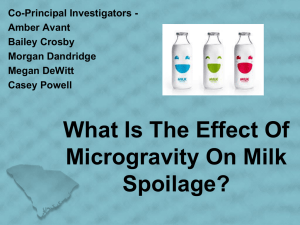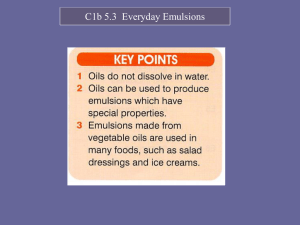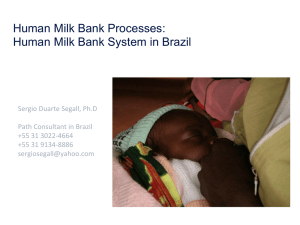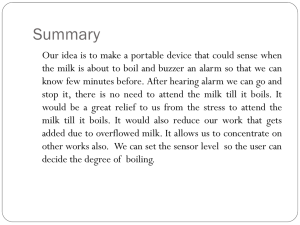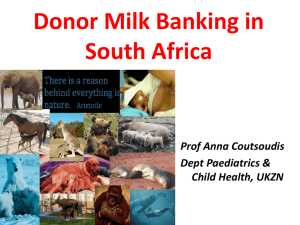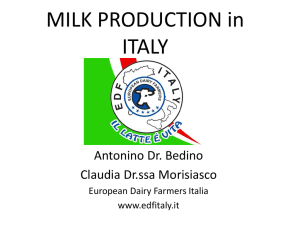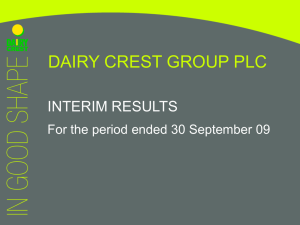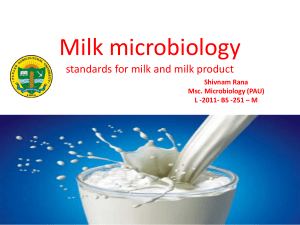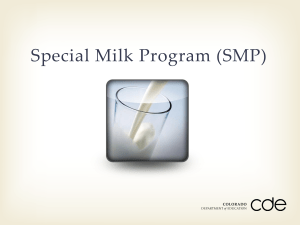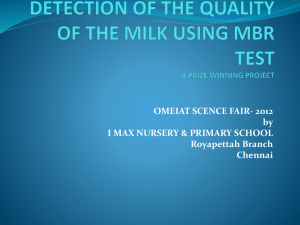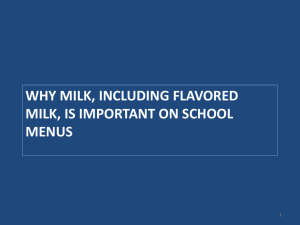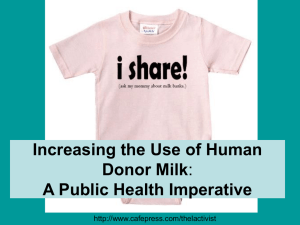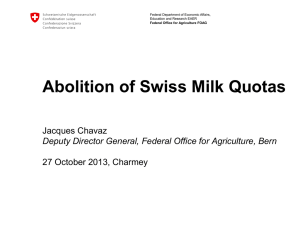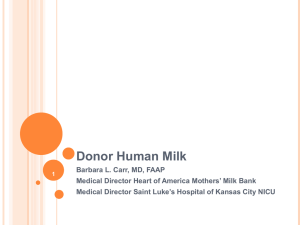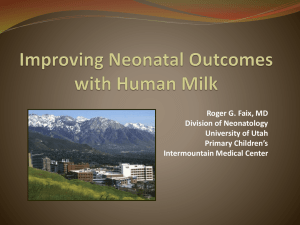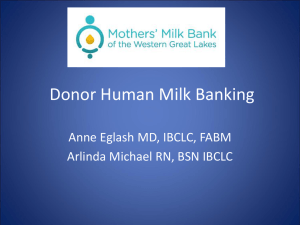Brief description of process
advertisement
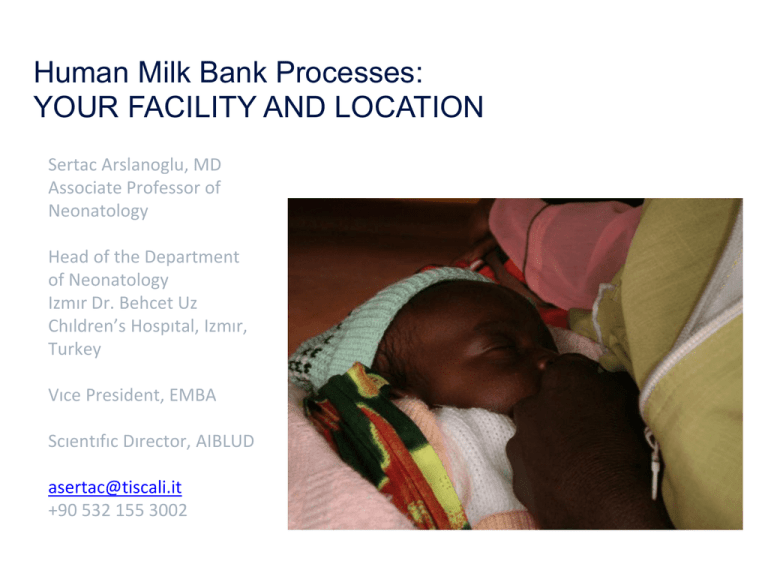
Human Milk Bank Processes: YOUR FACILITY AND LOCATION Sertac Arslanoglu, MD Associate Professor of Neonatology Head of the Department of Neonatology Izmır Dr. Behcet Uz Chıldren’s Hospıtal, Izmır, Turkey Vıce President, EMBA Scıentıfıc Dırector, AIBLUD asertac@tiscali.it +90 532 155 3002 Background info Brief description How did your human milk bank (HMB) began? When? The first human milk bank in Turkey has newly been established in İzmir in September 2012 (Department of Neonatology, Dr. Behcet Uz Children’s Hospital) (by Arslanoglu S and Chıldren’s Hospıtal team with the support of Turkish Ministry of Health). Soon there will be an official opening. The second bank is planned in Ankara. Who provided initial funding? How are ongoing operations funded? Integrated into government services? Mainly by Children’s Hospital And partly from a charity foundatıon of Hospital (donatıons) Who regulates /oversees HMB in your country/region (if any)? There is a close collaboration with Ministry of Health. Some regulatory measures and foundation of a human milk bankıng association are planned. National guidelines will be prepared. In the meantıme ınternational guıdelines are being followed. How many HMBs are part of your system? Where are they? 2 planned. Is there a central HMB that processes milk and distributes or many HMBs that process milk and distribute? (Centralized vs decentralized) --- How many NICU/Neonatal wards/community homes does each bank serve? Are they collocated? Our human milk bank is planned to serve to 2 NICUs . How many babies does your facility/system serve annually? 3000 babies a year How many liters/year does your facility/system process annually? ….. How many donor mothers initiate donation to your facility/system annually? ---- Page 2 Process Brief description of processes Staffing • • 1 responsıble doctor 1 full-time manager (nurse) Donor recruitment • • • • • • Information sharıng at admission of the babıes to the hospıtal Pediatricians in the field Press ( planned) Regular courses at the obstetrıc wards (planned) Distribution of the informatıon materia to the famıly doctor and pediatricians (planned) Website (planned) Donor screening • • • Face to face interview, detailed health questionnaire Blood testing (at the hospıtal’s central lab) Milk microbiology Recipient eligibility and selection • • • Planned for all preterm infants below 34 weeks Preterm ınfants < 1500 g , <32 weeks have priority Infants recoverıng from NEC or with intestinal problems Handling and storage of donor milk (from donation to feeding) • • At home monitoring of the temperature will be asked In hospıtal and in the bank temperature is continuously monitored. Raw and pasteurized milk is being conserved separately. All milk is rigorously labeled and registered by a computerized system. Process Brief description of process Transport of milk • • By hospıtal’s transport car and Milk Bank Staff Cold chain is being respected (thick walled containers ) Pasteurization • Holder Tracking and record keeping • • Computerized system Paper charts Assessing milk quality and safety (ie. microbiology assays) Pre pasteurization Every pool from a singe donor is tested Quality assurance • • • Post pasteurızatıon Every 10 cycle When there is a concern regarding the pasteurization HACCP Auto auditing the compliance yo guıdelınes Hospıtal’s qualıty control team audit Equipment/Location Brief description of process What is used/how many? • Pasteurizer 1 • Freezers (lockable?) lockable yes, 4 • Refrigerators 1 Additional HMB equipment • Ex. lockable room 2 • Computers 1 requirements? • Other Lamınar flow cabin, steriızer, macrocomponent analyzer Referral/feeder/depot facilities? • How many? • Equipment requirements? Neonatal ward equipment requirements? • System for tracking usage? Yes, computerized system • Freezer? 2 more freezer are needed Other? Organizational Successes Brief description of top 3-5 successes Policy • A Model of Human Milk Bankıng which takes into consideration «milk kinship» (religious and cultural aspects) Operational • Health outcomes will be monitored after the opening of HMB Technology Page 6 Organizational Challenges Brief description of top 3-5 challenges Policy Operational Technology • Milk kinship • Creation of a milk bank model adapted to religion and cultural issues Funding ıssues • Pasteurization technique should be optimized (research) Page 7

